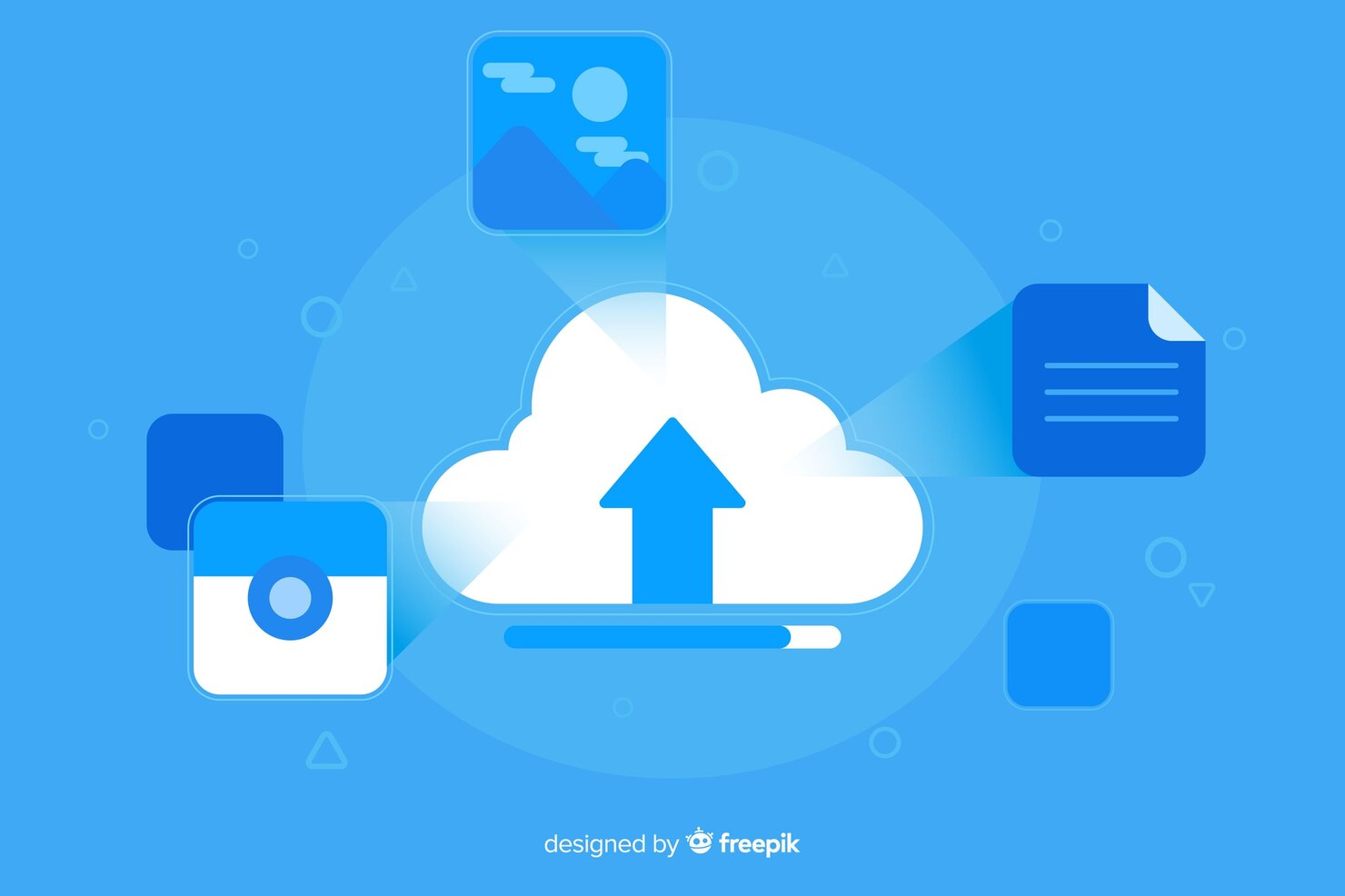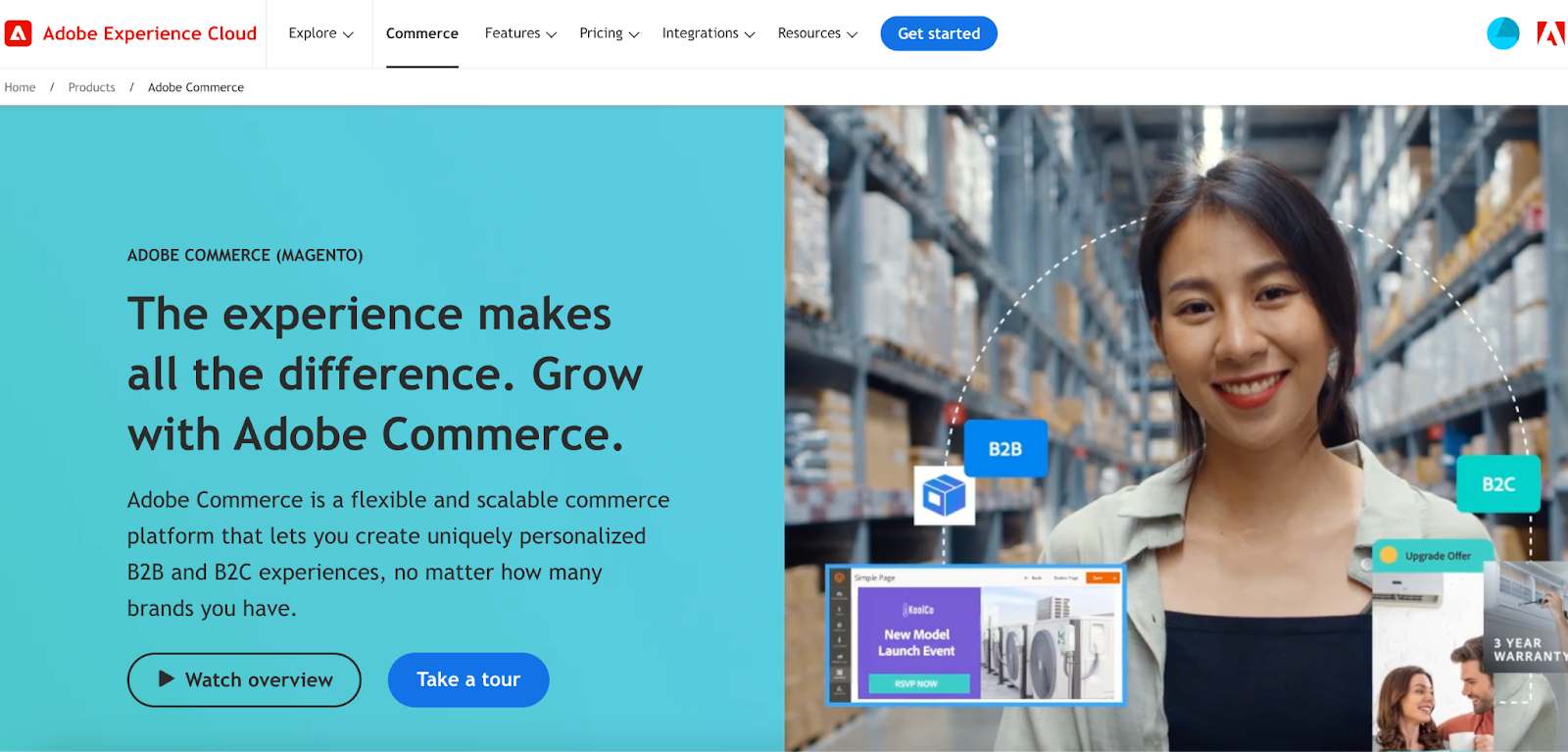Magento SaaS: How to Start a SaaS Business with Magento

For sellers, navigating different Software as a Service (SaaS) eCommerce platforms can be overwhelming. Setting up a multi-company SaaS E-Commerce venture using Magento 2 poses considerable challenges. Many newcomers and entrepreneurs face difficulties due to their limited grasp of Magento and SaaS. This article seeks to delve deeply into Magento SaaS to offer comprehensive insights.
What Is A SaaS Model in Business?
The essence of the software-as-a-service (SaaS) model lies in businesses subscribing to access software stored on cloud infrastructure, typically accessible through a web browser, by paying a monthly fee. Developing a worthwhile SaaS product often demands significant engineering expertise and a strong grasp of user interface design.

A key disparity between SaaS and traditional software companies lies in the cloud hosting of SaaS products. This eliminates the necessity for end-user licenses and infrastructure for hosting. The SaaS provider oversees membership management, requiring customers to log in to their accounts for full access.
The Importance of A SaaS Platform In E-commerce
A cloud-based e-commerce platform, known as Software as a Service (SaaS) in the e-commerce realm, is accessible through any web browser.
Always being on the latest version is a perk: By opting for a SaaS e-commerce system, you can swiftly leverage new features as they become available.
-
Operated through subscriptions: SaaS e-commerce is more cost-effective compared to purchasing a traditional e-commerce platform, as it is provided through a monthly subscription model.
-
Maintenance is simplified: SaaS upgrades and updates are typically automated, significantly reducing the need for manual maintenance, thus saving time and resources for your company.
-
Heightened security measures: With a SaaS online store, regular automated updates ensure it remains current and safeguarded against potential vulnerabilities such as downtime, data breaches, and cyberattacks.
Is Magento A SaaS Product?
Magento Commerce offers a cloud-hosted version called Magento Commerce Cloud. It’s crucial to note that Magento is a Platform-as-a-Service (PaaS) product, not Software-as-a-Service (SaaS), which implies that some system administration responsibilities still lie with your company.
Key features:
- Capacity to add and oversee over a thousand products.
- Ability to handle high-traffic volumes and process numerous orders concurrently.
- Built-in support for multiple languages.
- Capability to create product bundles.
- Management of discount coupons.
- Diverse options for payment gateways.
- Inventory management and distribution of newsletters.
- Tools for site administration and marketing.
Is Magento 2 A SaaS Platform?

The Magento SaaS strategy stands out as a leader in the e-commerce market. It represents a self-hosted platform utilizing Adobe Commerce Cloud (ACC). Like its counterparts, it provides a platform for individuals to establish online stores and vend their products.
Magento primarily caters to international brands but has also introduced Magento Go to cater to micro-businesses, offering the benefits of Magento at no extra cost. The company boasts a diverse clientele, including numerous international brands.
Now, let’s have a look at some key features that characterize Magento 2 as a SaaS platform:
-
Dedicated merchant storefront: Each vendor possesses their storefront featuring a banner image.
-
Template Variety: Magento 2 offers a wide array of theme options.
-
Theme Customization: Users can tailor their store’s themes to their preferences.
-
Storefront Editing and Management: Merchants have the ability to modify and oversee their stores and storefronts.
-
Domain Management: Magento 2 facilitates domain management, enabling integration with business operations and administration of DNS.
-
Inventory Management: Magento 2 also supports separate inventory management for each merchant. Additionally, all products associated with a particular seller will be showcased on their product pages.
Build A SaaS Business With Magento?
Establishing a successful e-commerce venture demands considerable time and dedication, particularly when opting for Magento as the platform. Given its robust yet intricate nature, effective utilization of Magento necessitates profound expertise and years of hands-on experience. Therefore, the optimal approach to kickstart a SaaS endeavor with Magento is to engage a proficient web developer specializing in Magento.
If you’re finding it difficult to identify a reliable service for building a Magento website from scratch, get contact our Magento Experts. With vast experience in Magento projects, we possess the expertise to transform your concepts into a flourishing, remarkable website.
Adhering to standards of excellence and affordability, Mageplaza endeavors to offer customers diverse service packages while maintaining unwavering quality. Feel free to reach out to us should you have any inquiries.
FAQs
1. What Makes Magento SaaS Different from Other E-commerce Platforms?
Magento SaaS, short for Software as a Service, is an online store solution that operates in the cloud, handling all your e-commerce needs. One standout feature is its flexibility.
Think of it as your personal online store that’s ready to adapt to your requirements. Whether you’re selling clothing or high-tech gadgets, Magento SaaS offers tools to customize your store to match your business perfectly. It’s not a one-size-fits-all solution, and that’s a good thing.
2. What is the Magento 2 SaaS Ecosystem and Why is it Important?
Now, if you’re wondering about Magento 2, it’s the upgraded version of the original Magento platform. It offers more features and enhanced security.
With Magento 2 SaaS, your online store operates on this advanced platform, ensuring you automatically receive all the latest updates. This makes your store faster, safer, and packed with the latest features. With Magento 2, your online store has the potential to be truly exceptional.
3. Is Magento SaaS the Right Choice for Your Business?
Let’s consider if Magento SaaS is suitable for your business. There are numerous benefits to using Magento SaaS. Firstly, it’s highly adaptable.
You can add new products, adjust prices, and update your store’s appearance without needing advanced technical skills. This platform scales with your business, making it a wise choice for both small and large enterprises. Also, it’s considered to be highly secure.
4. How Much Does Magento SaaS Cost?
The expenses for Magento can vary depending on your needs. There are initial setup costs and ongoing maintenance expenses.
Generally, you might expect to pay between $12,000 to $247,000 or more, depending on your chosen plan. Some costs are upfront, while others are recurring.
The key thing to note is that Magento SaaS provides various pricing options to suit different budgets. You can choose a plan that works for you without overspending.
Conclusion
Understanding the points mentioned above can streamline the process of launching a SaaS business. Given the substantial advantages it offers, opting to construct an online store using Magento could prove to be a prudent decision. We trust that the insights provided above will empower you to confidently steer your e-commerce venture toward profitability and competitiveness.




